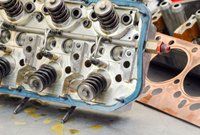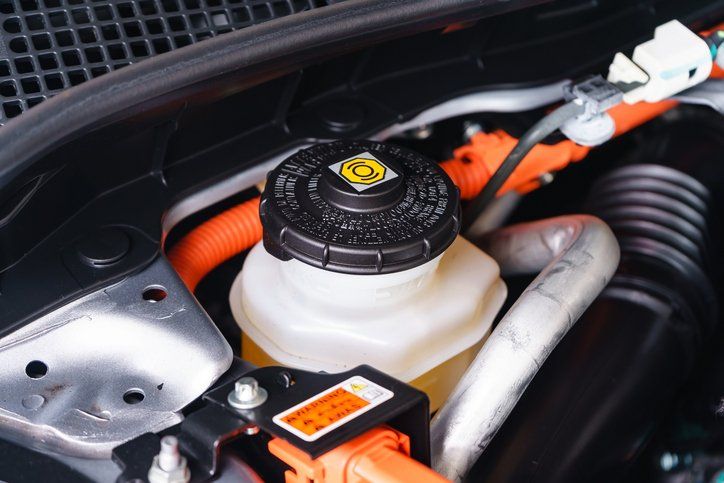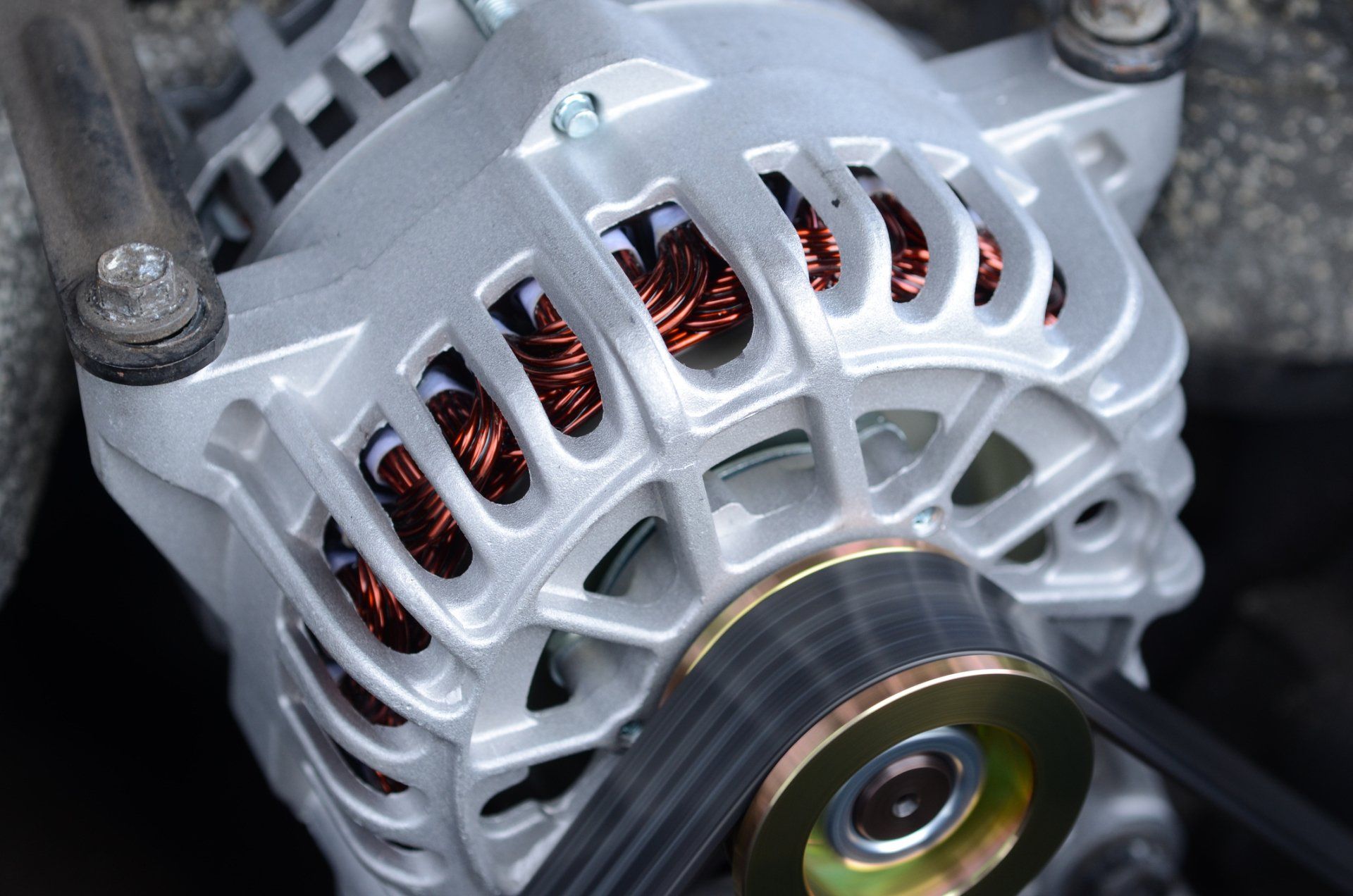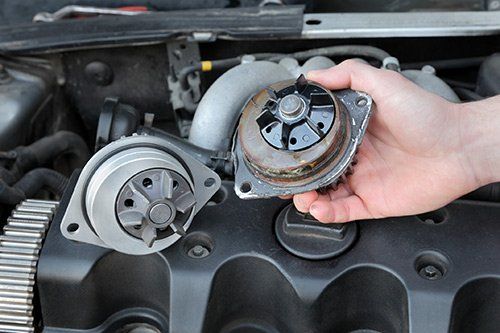Few automotive components play as large a role on safety as the brakes. For this reason, car owners should have their brakes inspected regularly and immediately replace any brake pads that have worn down excessively. Yet another important aspect of the brake system often gets overlooked by car owners: the brake fluid.
Brake fluid transmits force from your car's brake pedal all the way to your vehicle's wheels. Problems with your brake fluid can greatly decrease the efficiency of this transmission. If you would like to learn more about the brake fluid in your car, keep reading. This article outlines two key things to know about your brake fluid.
Water contamination poses a serious threat to brake fluid. Brake fluid has a naturally hygroscopic nature, meaning that it readily attracts moisture to it. But when water gets into your brake lines, it dilutes the fluid. As a result, the brake fluid's boiling point goes down, making it less able to resist the high temperatures generated by your brakes.
Boiling brake fluid simply cannot stop your car as efficiently. In some extreme cases, moisture contamination may even cause your brakes to fail entirely. Meanwhile, that moisture will lead to corrosion of your wheel cylinders, brake calipers, and other metal components inside of your brake system.
Historically, moisture contamination accounted for the majority of brake fluid problems. The rubber used to construct older brake hoses often had a permeable structure, meaning that moisture could migrate through the hoses into the brake fluid. Today, most brake hoses contain special waterproof liners that prevent water from seeping into your system.
Of course, water can still find other ways into your brake fluid. Moisture often penetrates past wheel cylinder piston seals into the brake system. Likewise, any time you open your brake fluid reservoir, moisture will immediately begin seeping into the fluid. But provided you keep your brake system properly maintained, you should be able to keep the threat of water at bay.
Today's brake fluids have a far more complex
composition
than those used in the past. Between 60 and 90 percent of a brake fluid consists of polyglycol ethers. These low viscosity molecules act as a solvent, ensuring that all of the other ingredients remain thoroughly dissolved in the fluid, regardless of temperature.
Between 5 and 30 percent of a brake fluid consists of polyglycols, which play the role of lubricant. Finally, between 2 and 5 percent of a brake fluid consists of additives meant to improve performance in various ways. Certain additives protect against corrosion, while others reduce the rate of polyglycol decomposition.
Other additives improve the fluid's anti-wear and acid neutralizing properties. Some fluids also contain additives which regulate pH balance and provide protection against foaming. Despite their vital importance to a brake fluid's stability, additives also represent its greatest weakness. As additives break down, the brake fluid's reliability quickly decreases.
The break down of corrosion inhibitors, in particular, poses a serious threat to your car. Without corrosion inhibitors, metal brake components will soon begin to rust, eventually leading to the need for more expensive repairs. Fortunately, mechanics can gauge the level of break down by measuring the concentration of copper ions in your brake fluid.
As corrosion inhibitors break down, copper from the brake line tubing corrodes and releases ions into the fluid. If copper concentrations exceed 200 parts per million, your brake fluid can no longer provide adequate corrosion protection. To prevent more costly forms of damage, you must change your brake fluid at once.
Brake fluid plays a vital role in allowing your car's brake system to work properly. For more information about how often you should have your brake fluid changed,
contact
Saltillo's auto experts at Midway Garage & Wrecker Service.



















